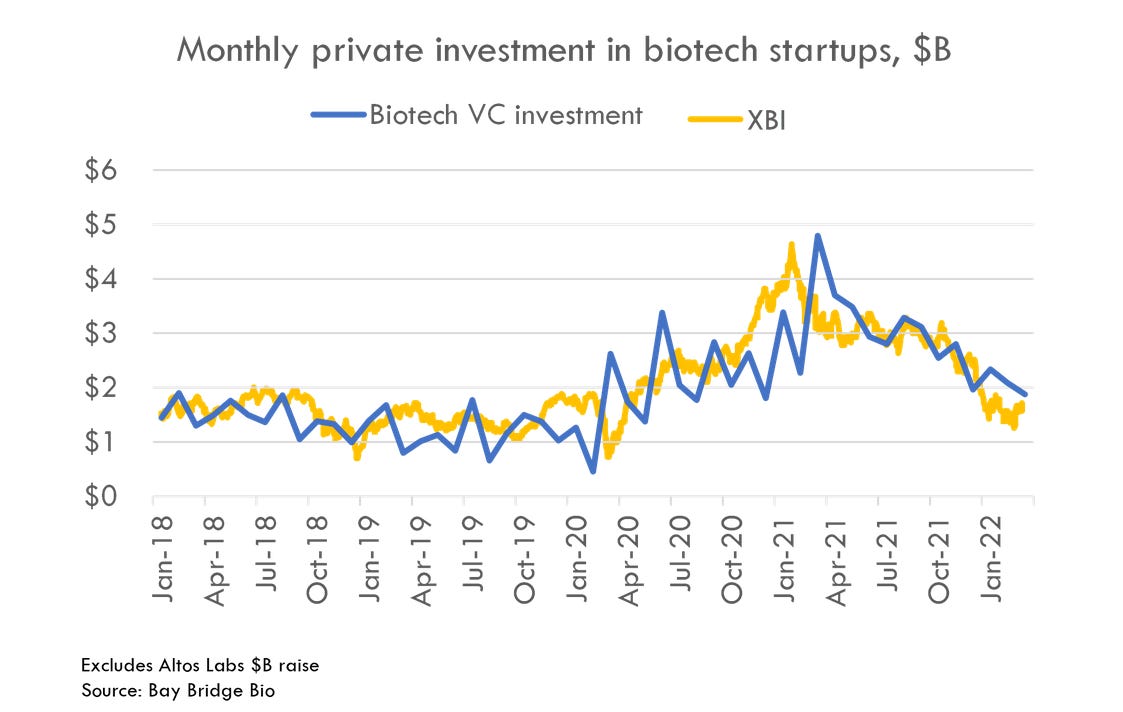Biotech Venture Capital in 2022
by Jade Steinmetz
Biotechnology is one of the riskiest investments a venture capital firm can make. Early-stage biotech companies usually take years to generate revenue, and the costs are high due to the need to fund clinical trials. Despite this, investment in biotech has boomed in recent years, especially during the pandemic. Venture investment into health and biotech reached a record $82 billion in 2020 and jumped to $121 billion in 2021 (Crunchbase).
In general, venture capital firms that invest in biotechnology startups are healthcare-focused, as specific experience and expertise are required to monitor these types of companies and conduct due diligence. Venture capital firms with a diversified strategy can invest in other healthcare segments such as medical devices or non-biotech life sciences as well. Corporate venture capital funds also play an important role in biotech investments. These venture funds are owned by large corporations, in this case, biotechnology or pharmaceutical companies. A list of CVC funds specializing in biotech and healthcare can be found below (MIT).
The leading venture capital firms to invest in biotech last year were RA Capital Management and OrbiMed Advisors (Crunchbase). Both invested in Adagio Therapeutics, a company that is creating therapies for COVID-19, and raised $356 million in an IPO last August. Adagio was initially selling at $17 per share but now their shares are worth less than $3 a piece. More than 100 biotech companies went public last year, but stock prices across the sector have plummeted. This may explain why fewer biotech startups are going public this year. The expectation is that there will be less growth in the biotech industry in 2022 (Pitchbook). The Nasdaq Biotechnology Index, which tracks stock prices of biotech companies listed on Nasdaq, has gone down by almost 24% since the beginning of the year, while the S&P Biotech Index, XBI, went down by more than 40%. Private biotech investment, which is linked to public markets, has gone down as well (Bay Bridge Bio).
On the other hand, lower valuations of biotech companies could fuel M&A activity, as large pharmaceutical companies might be incentivized to buy new startups at lower prices. According to Labiotech, in the long term, investments in biotech will stay strong. Investors are increasingly focused on the life sciences. For instance, the bioscience venture capital firm Abingworth was recently acquired by private equity giant Carlyle Group. Furthermore, venture funding into early-stage biotech start-ups is staying strong despite the downturn (Evaluate).





